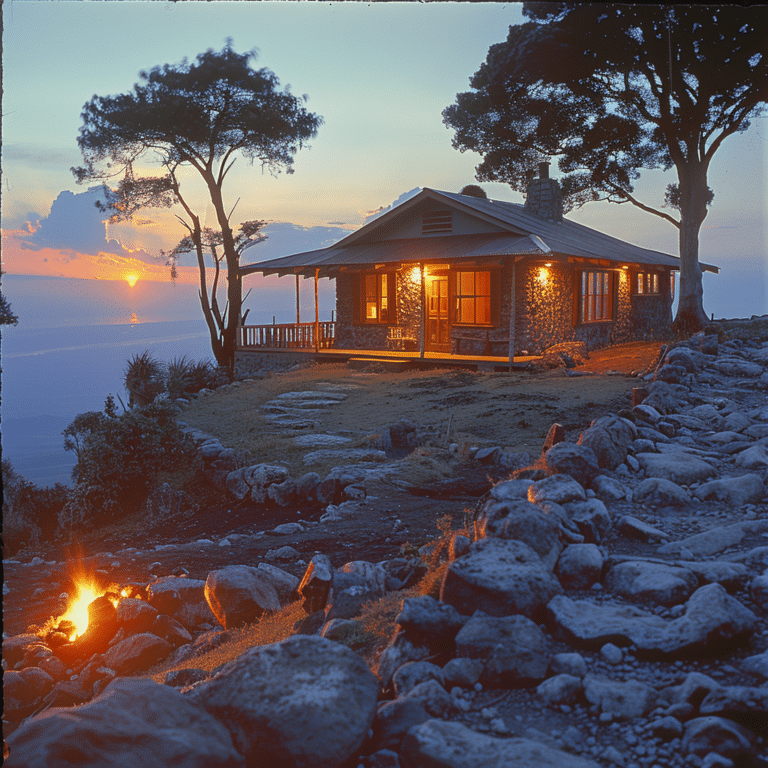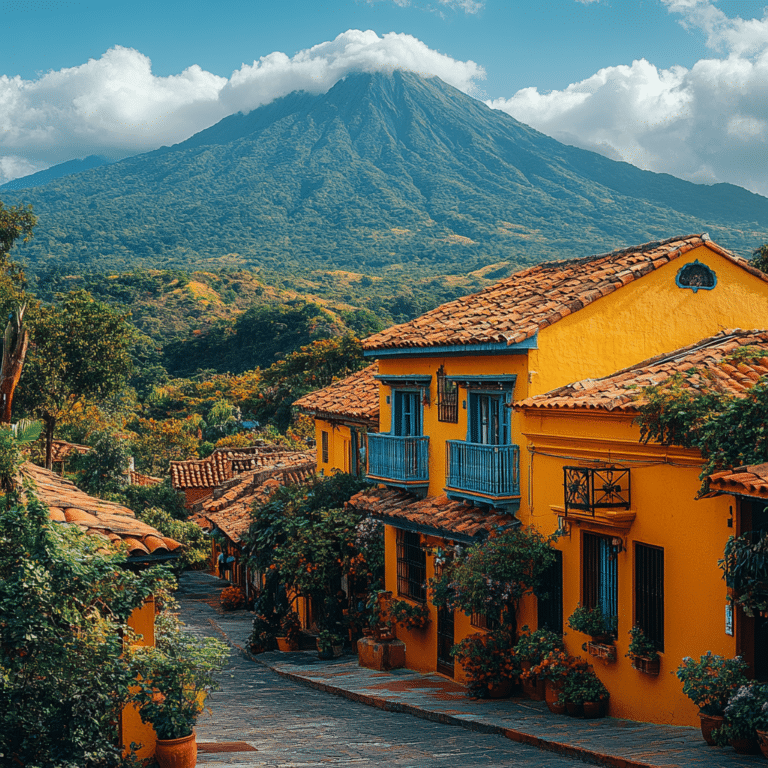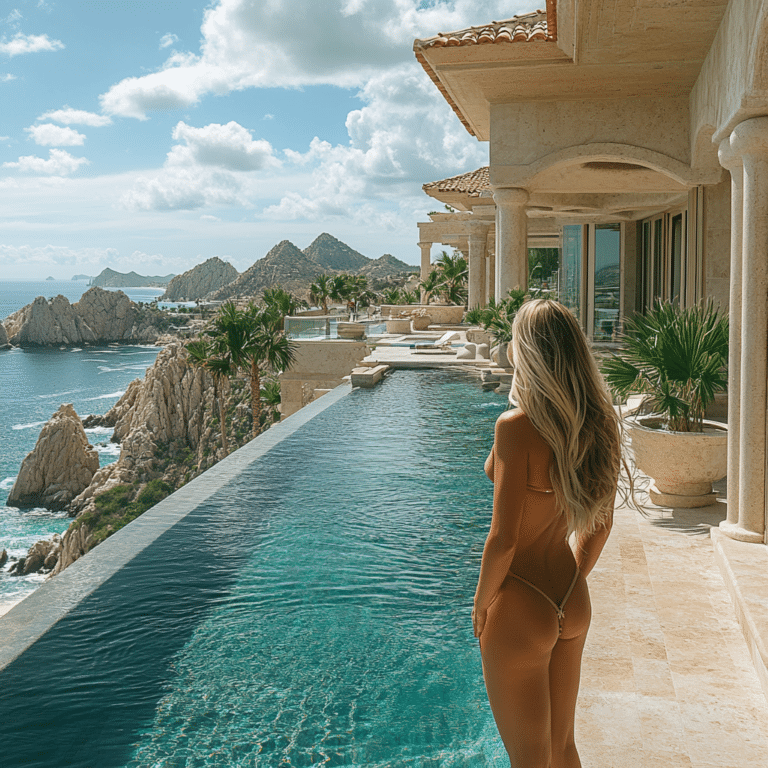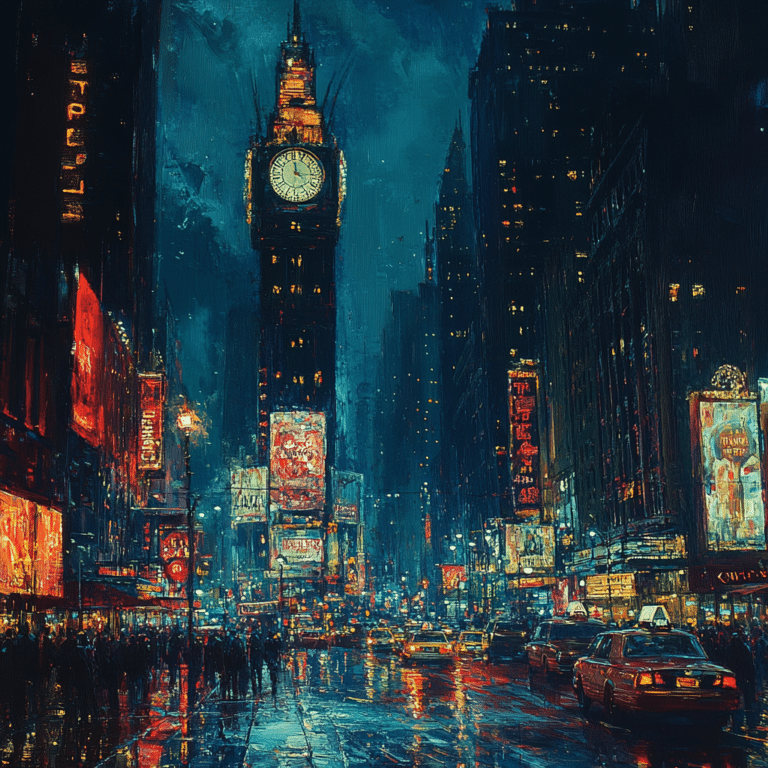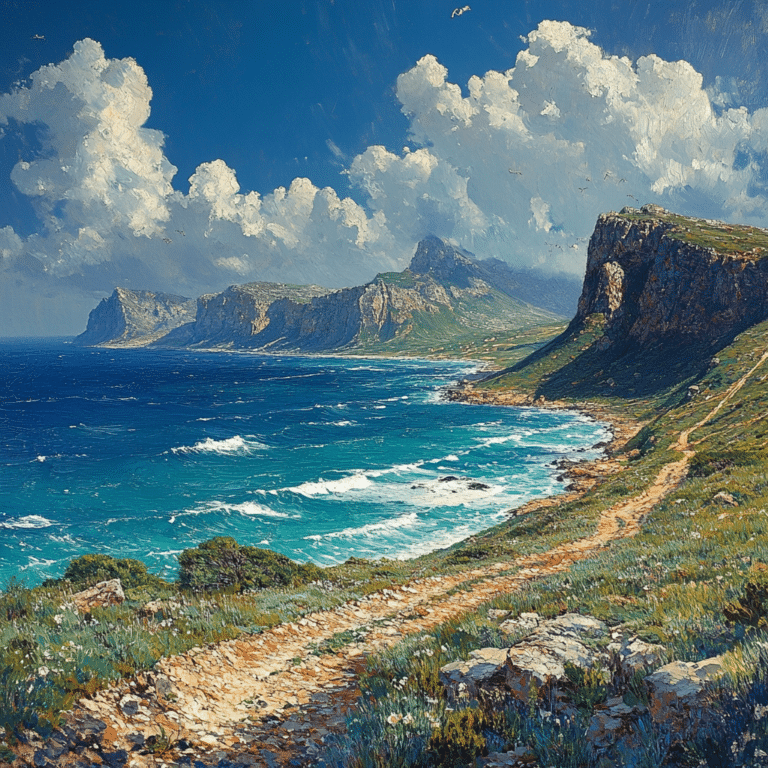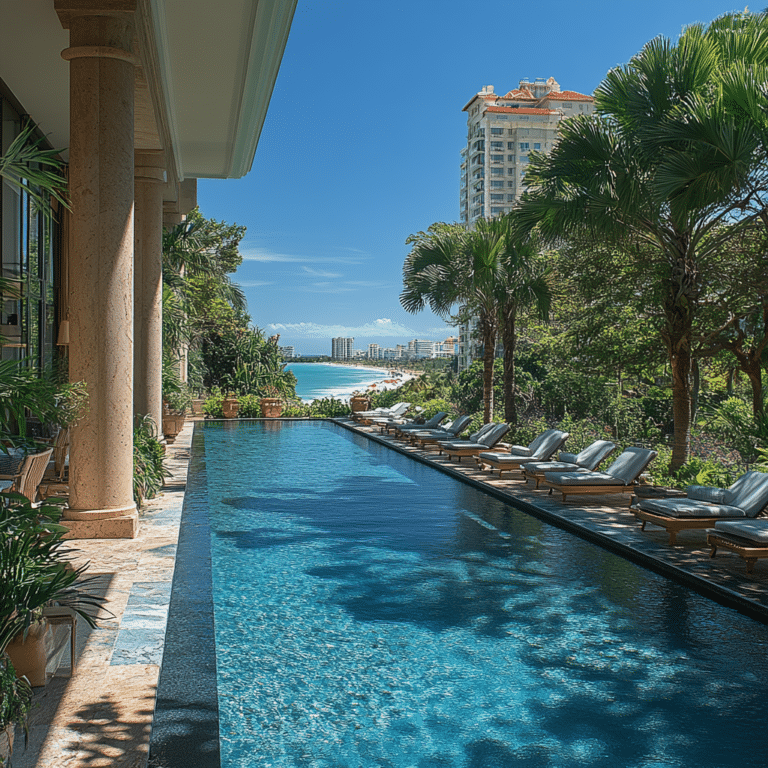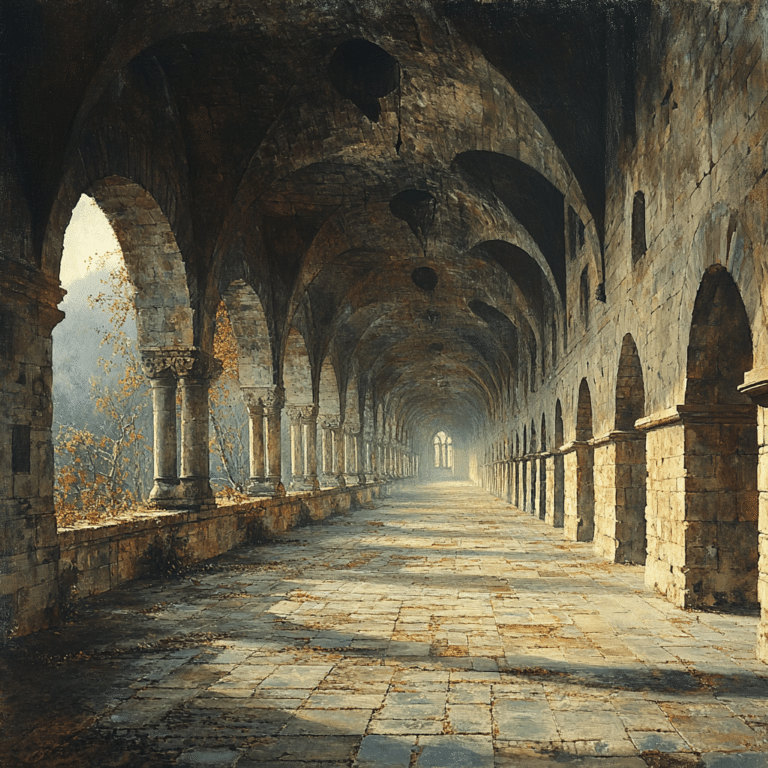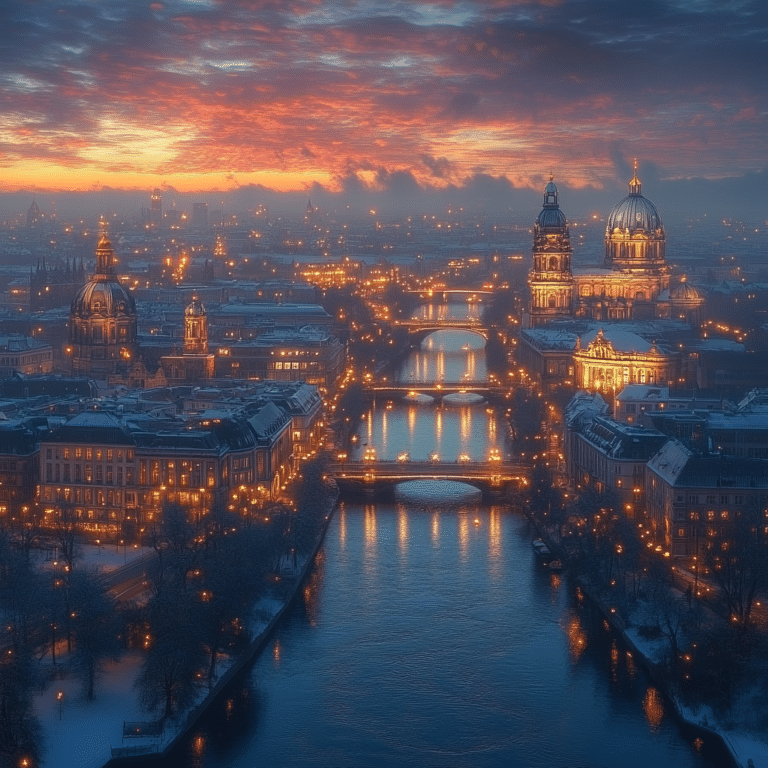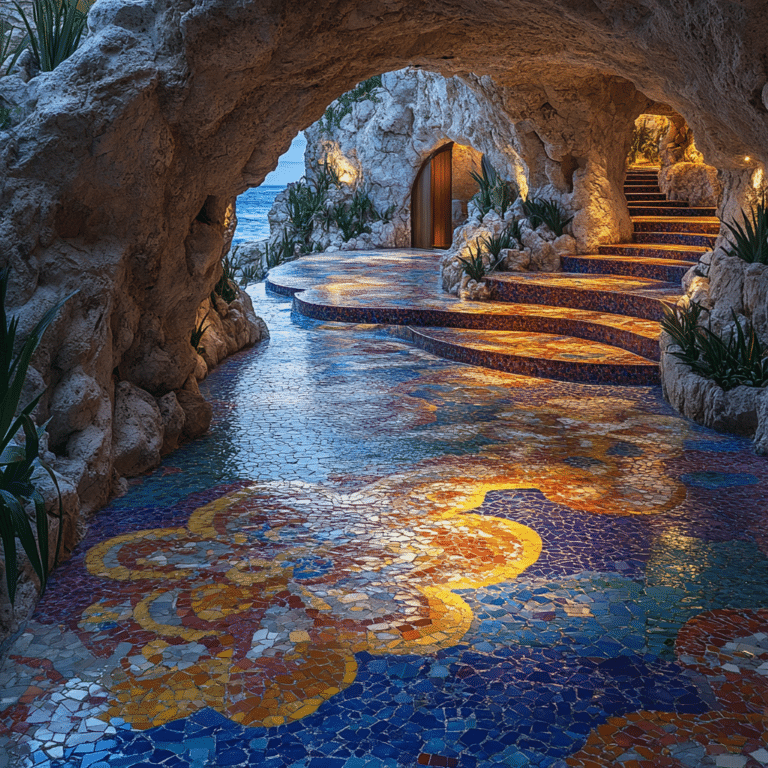Situated on the Big Island of Hawaii, Mauna Loa is the world’s largest active volcano, offering an exhilarating experience for adventure-seekers. The Mauna Loa Summit Cabin presents a unique opportunity for hikers to immerse themselves in the rugged beauty and isolated splendor of this incredible volcanic landscape. This article delves into the enthralling hiking adventure around the Mauna Loa Summit Cabin, focusing on what makes this trek unparalleled and providing essential tips for travelers looking to embark on this journey.
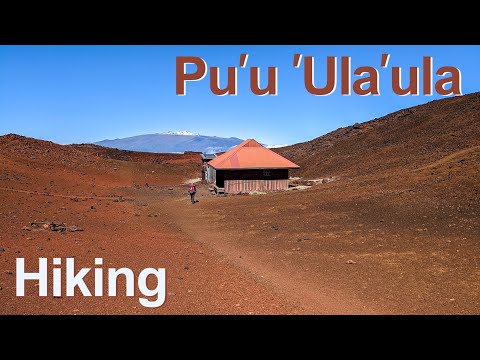
Discovering the Iconic Mauna Loa Summit Cabin
The Mauna Loa Summit Cabin is a remote shelter perched at an elevation of nearly 13,250 feet, offering a respite for hikers at the peak of the colossal volcano. It’s not just a place to catch your breath; it stands as a sanctuary where adventurers connect with the profound stillness of Mauna Loa’s summit, away from the chaos of modern life.
The Historical Significance
The cabin holds historical value as it was constructed by the Hawaii Volcanoes National Park in the mid-20th century. It serves as a testament to the human spirit’s endurance in the face of nature’s grandeur, providing a piece of history for hikers traversing these volcanic paths. The significance of having a shelter at such an altitude underscores the uniqueness of this experience.
What to Expect Inside
Equipped with basic facilities, the Mauna Loa Summit Cabin is designed to cater to the essentials: sturdy bunks, a rainwater catchment system, and a rustic stove. It’s essential, however, for hikers to pack their own food, fuel, and any extra comforts they may desire for a cozy night’s stay. The cabin offers a practical rest stop without any frills, ideal for those who appreciate the ruggedness of the wild.
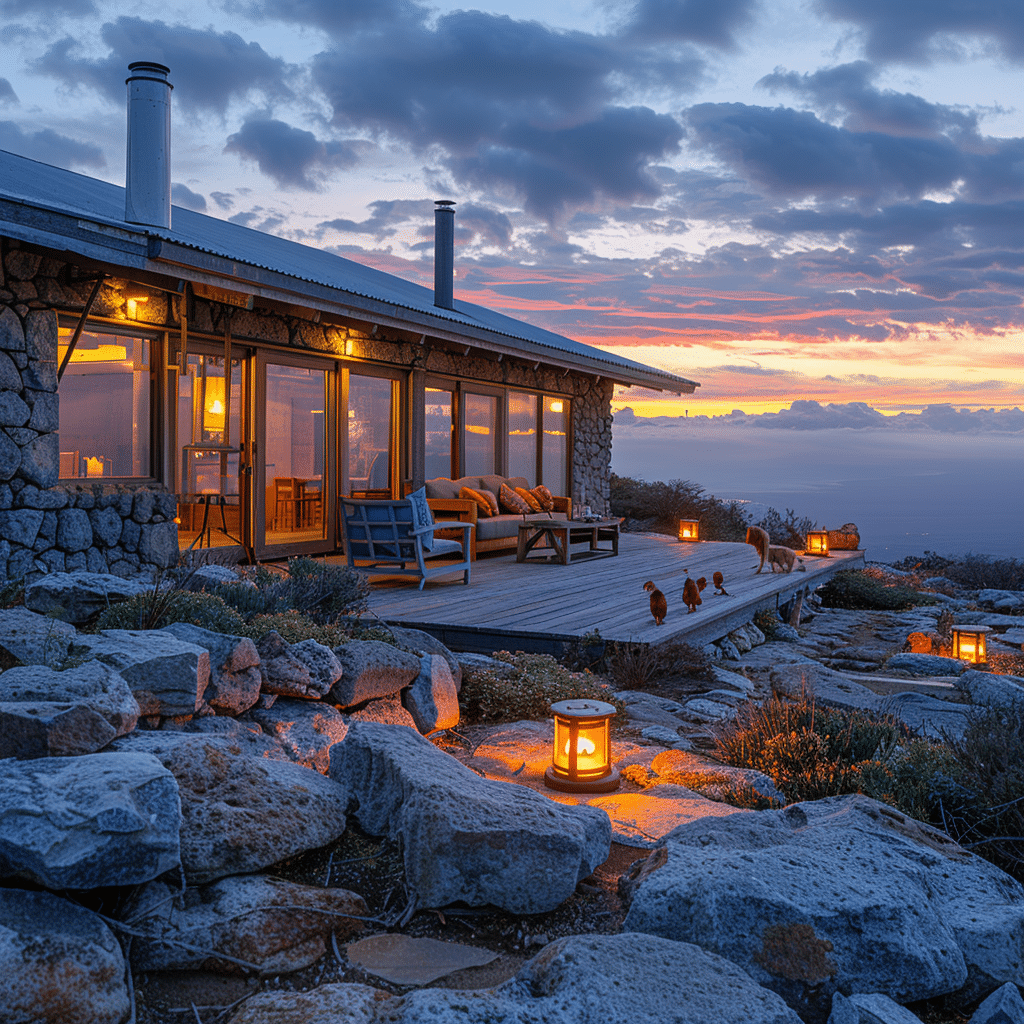
Top 5 Reasons to Hike to the Mauna Loa Summit Cabin
Unmatched Panoramic Views
The ascent to the Mauna Loa Summit Cabin rewards hikers with unrivaled panoramic views of the park and beyond. On clear days, the sight of the Pacific Ocean juxtaposed against the black volcanic landscape creates an otherworldly scene that few places on Earth can replicate. The visual treat is worth every bit of the trek, capturing the essence of Hawaii’s dramatic scenery.
Unique Geological Features
The trek up Mauna Loa offers a firsthand view of unique geological formations, including lava tubes, extensive lava flows, and caldera features. It’s a true geologist’s dream, with the landscape narrating stories of volcanic activity that span centuries. Seeing these features up close brings textbooks to life, providing unforgettable memories for hikers.
Biodiversity and Natural Beauty
While the trails are dominated by arid lava fields, there’s still a surprising amount of biodiversity. Keep an eye out for rare flora and fauna adapted to the harsh environment of Mauna Loa. Native birds such as the nēnē (Hawaiian goose) and silversword plants offer a glimpse of life in the barren landscape, adding an unexpected touch of beauty to your adventure.
Ultimate Physical Challenge
Climbing Mauna Loa is not for the faint-hearted. The trail to the summit cabin is approximately 18 miles long and requires a high level of physical fitness and endurance. It’s a test of strength and willpower, offering a rewarding sense of achievement upon completion. The challenge makes the journey even more fulfilling for those who conquer it.
Peace and Solitude
Unlike more popular tourist destinations, Mauna Loa offers a secluded hiking experience. The isolation provides a unique opportunity for meditation and reflection, making it an ideal venture for those looking to disconnect and find inner peace. The silence and solitude add to the mystical charm of the adventure.
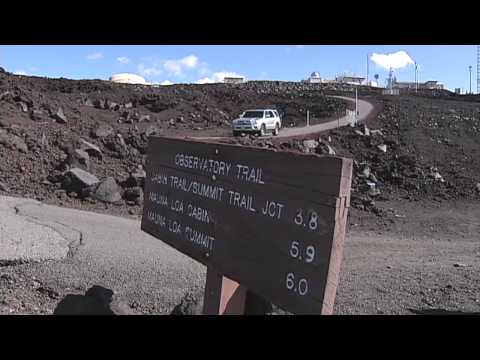
| Attribute | Details |
| Location | Mauna Loa, Hawaii |
| Elevation | 13,250 feet (4,039 meters) |
| Managed By | National Park Service |
| Accessibility | Only accessible on foot through two strenuous backpacking routes |
| Routes | 1. Mauna Loa Observatory Day Hike 2. 30+ Mile Trek from Hawai’i Volcanoes National Park |
| Route Difficulty | Considered strenuous due to rugged terrain and high altitude |
| Approximate Hiking Distance | 1. Day Hike: Challenging, begins at Mauna Loa Observatory 2. Extended Trek: Over 30 miles (48 kilometers) from Hawai’i Volcanoes National Park |
| Permits | Day Hike: No permits required Extended Trek: Requires permits and 3-5 days to complete |
| Driving Requirements | A 4WD vehicle is required to drive to the summit of Mauna Kea, but for Mauna Loa, hikers typically start from lower elevations and hike to the summit |
| Estimated Drive Time | Approx. 2 hours from sea level to the summit area (if driving to start of hike) |
| Tips for Hikers | – Go at your own pace – Save money by not purchasing tours – Properly acclimatize to avoid altitude sickness |
| Best Time to Visit | Visit during dry seasons and when weather conditions are favorable. Always check weather updates before planning your hike to Mauna Loa. |
| Facilities | Basic cabin amenities; no luxury or modern conveniences. Bring adequate supplies and be prepared for rugged conditions. |
| Safety Tips | – Be prepared for sudden weather changes – Carry enough water and high-energy snacks – Inform someone about your hiking plan – Carry a map and GPS |
| Nearby Attractions | Hawai’i Volcanoes National Park, Mauna Kea |
Recommended Gear for Your Mauna Loa Hike to the Summit Cabin
Preparing adequately for the hike to the Mauna Loa Summit Cabin is crucial. Here’s a comprehensive list of gear to ensure a safe and comfortable journey:
Essential Hiking Gear
Safety and Basic Needs
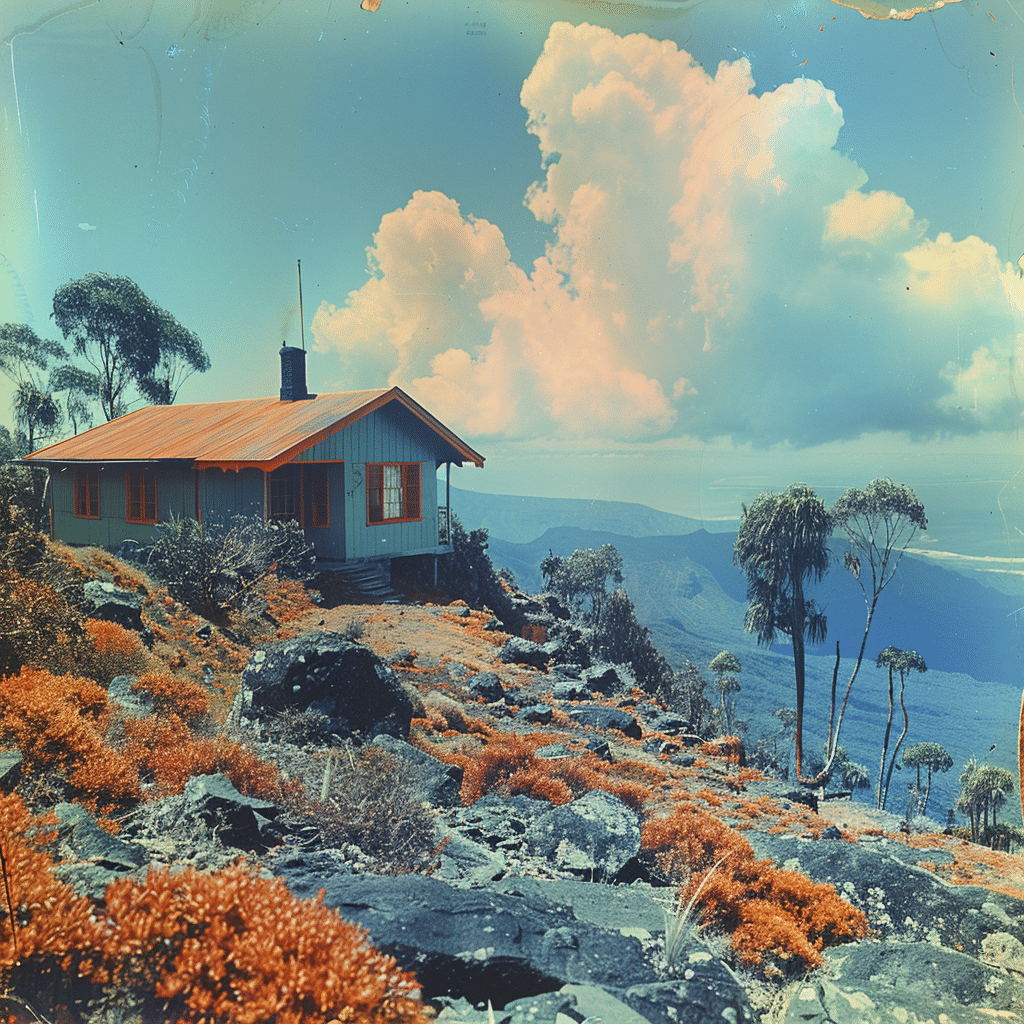
Expert Tips for Hiking to the Mauna Loa Summit Cabin
Acclimate Smartly
Given the high altitude, it’s wise to spend a day acclimatizing to the elevation before attempting the summit hike. This reduces the risk of altitude sickness and prepares your body for the challenging trek. Acclimation is a crucial step for a successful hike.
Monitor Weather Conditions
Unpredictable weather can drastically affect your hike. Keep an eye on forecasts provided by the Hawaii Volcanoes National Park website and plan accordingly to avoid hazardous conditions. Timely weather updates can save you from unpleasant surprises.
Secure Necessary Permits
A wilderness permit is required for overnight stays at the Mauna Loa Summit Cabin. Obtain your permit in advance from the park’s visitor center to ensure compliance with regulations and contribute to conservation efforts. Planning ahead keeps your journey smooth and hassle-free.
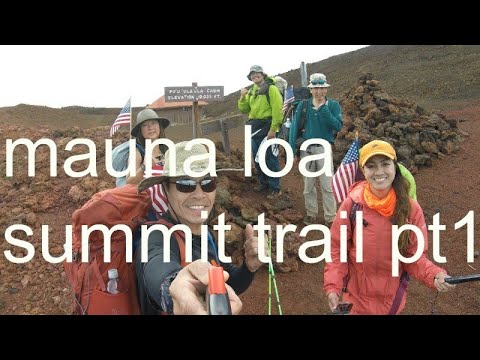
Reflections on the Mauna Loa Summit Cabin Experience
The hike to the Mauna Loa Summit Cabin is not just a physical challenge but a mental and spiritual journey. It’s a quest that strips away distractions, connecting hikers with the raw power and beauty of nature. Whether it’s the breathtaking sunrise over a sea of clouds or the profound silence of the lava fields, every moment on Mauna Loa holds the potential for a transformative experience.
Embrace the challenge, relish the adventure, and discover a new perspective atop one of the world’s most awe-inspiring summits. This journey is more than just a hike; it’s an exploration that leaves an indelible mark on the soul.
By experiencing the Mauna Loa Summit Cabin trek, you not only conquer a physical trail but also gain stories and reflections that’ll last a lifetime. Ready to embark on this life-changing adventure? Pack your gear and set your sights on Mauna Loa today!
The Ultimate Mauna Loa Summit Cabin Experience
If you’re itching for an adventure that blends awe-inspiring scenery with fascinating trivia, the Mauna Loa summit cabin hike is just the ticket. Nestled atop one of Hawaii’s most iconic volcanoes, the Mauna Loa summit cabin offers more than breathtaking vistas; it serves as a gateway to some pretty cool stories and facts.
Surprising Local Connections
Did you know that hiking the Mauna Loa summit has a unique Baltimore connection? The intrepid explorer and actor Michael Landon, known for his classic Michael Landon movies and TV shows, was rumored to have enjoyed various outdoor adventures, including hikes like this one. Just imagine, walking the same paths that some of your favorite celebrities might have tread!
International and Cultural Links
The allure of the Mauna Loa summit spans the globe, drawing in visitors from every corner. For instance, a Russian girl named Svetlana, who became famous for her adventurous spirit, reportedly described the hike as one of the most memorable experiences of her life. Hiking up Mauna Loa is like a universal language, understood by thrill-seekers worldwide.
Odd and Interesting Tidbits
As you’re traversing this rugged terrain, your mind might wander to interesting trivia. For example, former linebacker Chris Spielman often speaks about his love for challenging hikes and nature. Could he have tackled this very summit? And while seemingly unrelated, your adventurous spirit brings to mind some unusual trivia about cocaine pupils and how they dilate in excitement and challenge—perhaps much like yours do when gazing at the vast volcanic landscape.
So, pack your gear, lace up those hiking boots, and prepare for the adventure of a lifetime at the Mauna Loa summit cabin. Who knows? Maybe you’ll celebrate your successful hike with a surprising treat, like a McDonald’s cake, adding a quirky touch to your incredible journey.
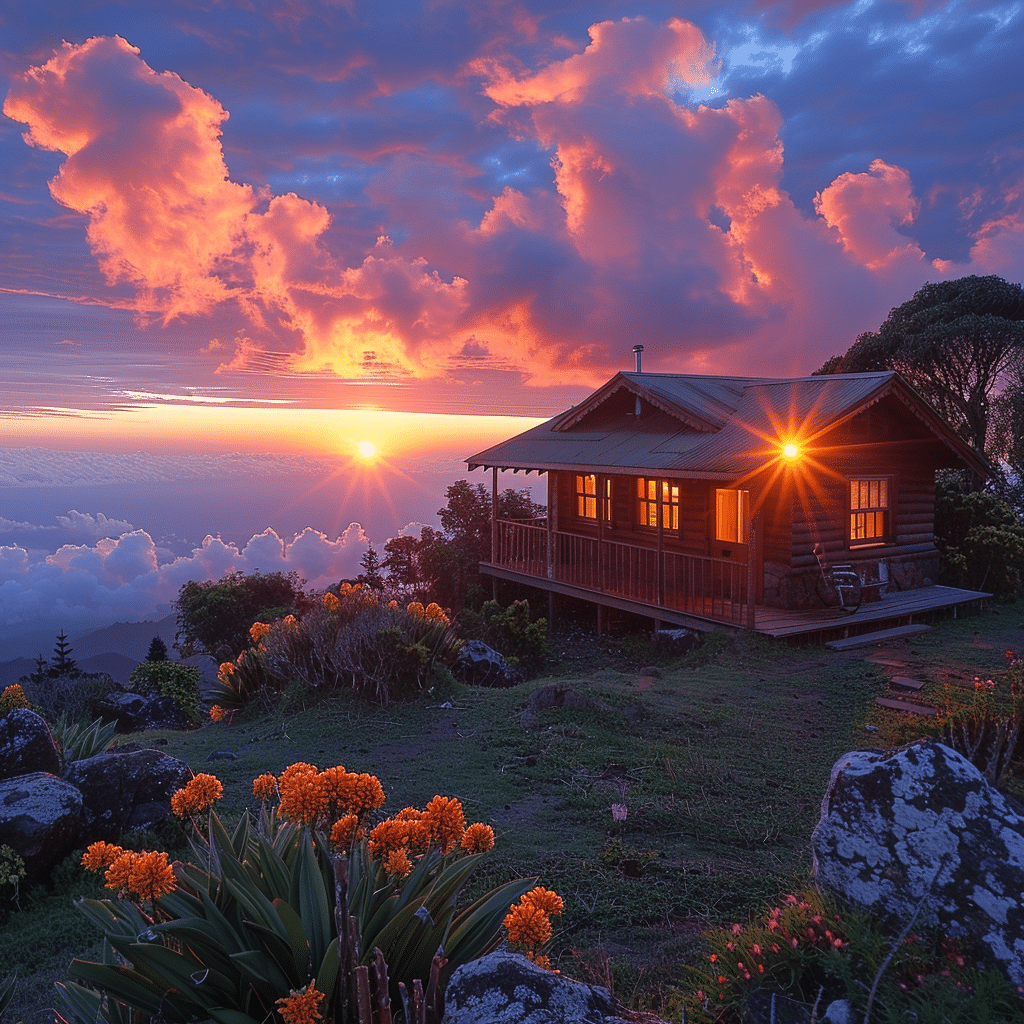
How high is Mauna Loa summit cabin?
The Mauna Loa Cabin sits at an altitude of 13,250 feet (4039 meters) and is managed by the National Park Service.
Can you go to the summit of Mauna Loa?
Reaching the summit of Mauna Loa is possible, but only on foot. You can get there via two strenuous backpacking routes that are quite challenging due to the rugged terrain and high altitude.
Can you get to the top of Mauna Loa?
Yes, you can get to the top of Mauna Loa, but it’s tough. There’s a challenging day hike that starts at the Mauna Loa Observatory and another longer route that begins in a tropical rainforest, requiring a 30-mile trek.
Can you summit Mauna Kea without a tour?
You can absolutely summit Mauna Kea without a tour. It takes about 2 hours to drive from sea level to the summit, and you’ll need a 4WD vehicle for the trip.
How high is Mauna Loa above sea floor?
Mauna Loa rises about 30,000 feet from its base on the ocean floor, making it one of the tallest mountains on Earth when measured from its underwater base.
How many people live on Mauna Loa?
There aren’t any permanent residents on Mauna Loa itself since it’s a volcano. Most people live in nearby communities but not directly on the volcano.
Is it worth going to Mauna Kea Summit?
Going to the Mauna Kea Summit is definitely worth it. The views are stunning and you get this crazy cool sense of being on top of the world.
Can I drive up Mauna Loa?
You can’t drive up Mauna Loa. The summit is only accessible on foot via backpacking trails designed for hikers.
How long does it take to drive from the visitor center to the summit of Mauna Kea?
It takes roughly 2 hours to drive from the visitor center to the summit of Mauna Kea. Make sure you have a 4WD vehicle for the journey.
Why is Mauna Loa closed?
Mauna Loa is not closed, but it’s important to check for any temporary closures or alerts that might come up due to volcanic activity or weather conditions.
What is the largest volcano on Earth?
The largest volcano on Earth is Mauna Loa. It’s massive in both height and volume, making it the giant among giants.
Will Mauna Loa erupt again?
Mauna Loa will erupt again in the future. It’s an active volcano, and while scientists can monitor it closely, predicting the exact timing of eruptions is tricky.
Can you drive a rental car to Mauna Kea Summit?
You can drive a rental car to the Mauna Kea Summit, but only if it’s a 4WD vehicle. Make sure to get rental company approval since not all rentals are allowed up there.
How do you get to Mauna Kea Summit on your own?
To get to Mauna Kea Summit on your own, you’ll need a 4WD vehicle. It’s about a 2-hour drive from sea level, and you can make stops at the visitor center on the way up.
What is the difference between Mauna Kea observatory and Summit?
The Mauna Kea Observatory is a world-renowned site for astronomical studies. The summit offers breathtaking views and is where you’ll find the observatories. They’re essentially parts of the same location, just different aspects of what you might want to experience.

